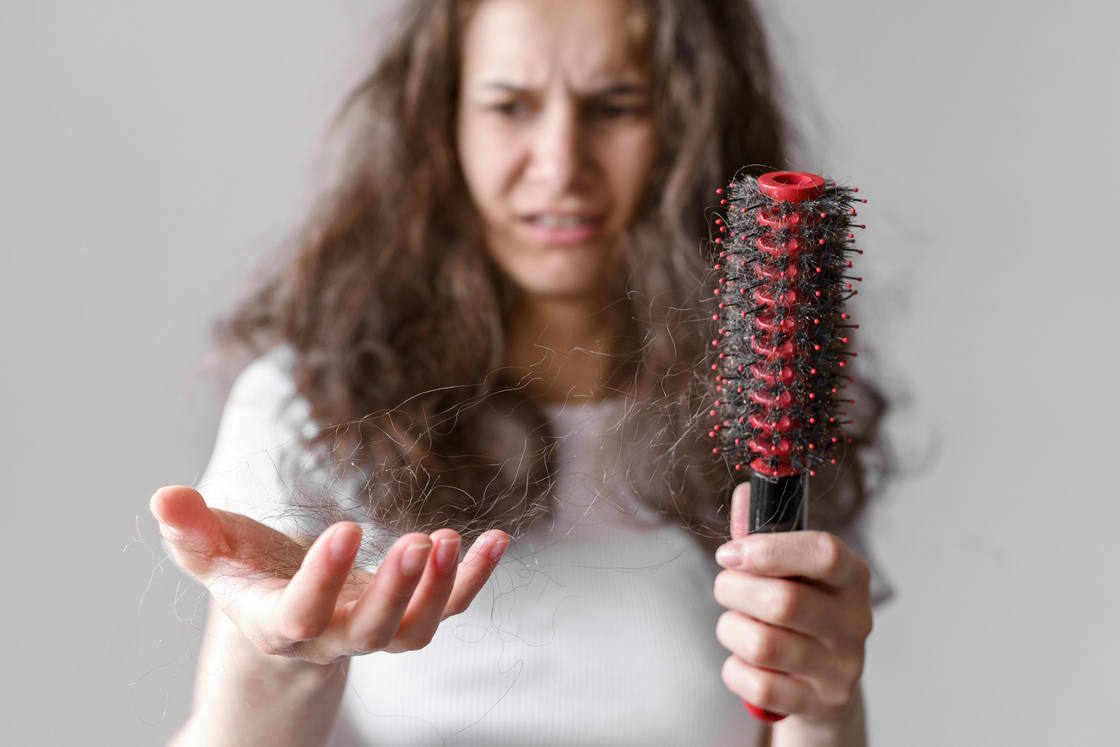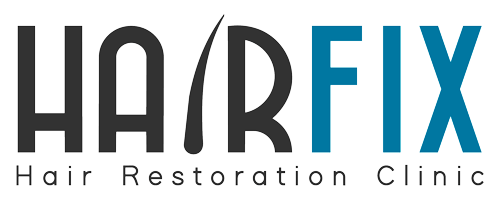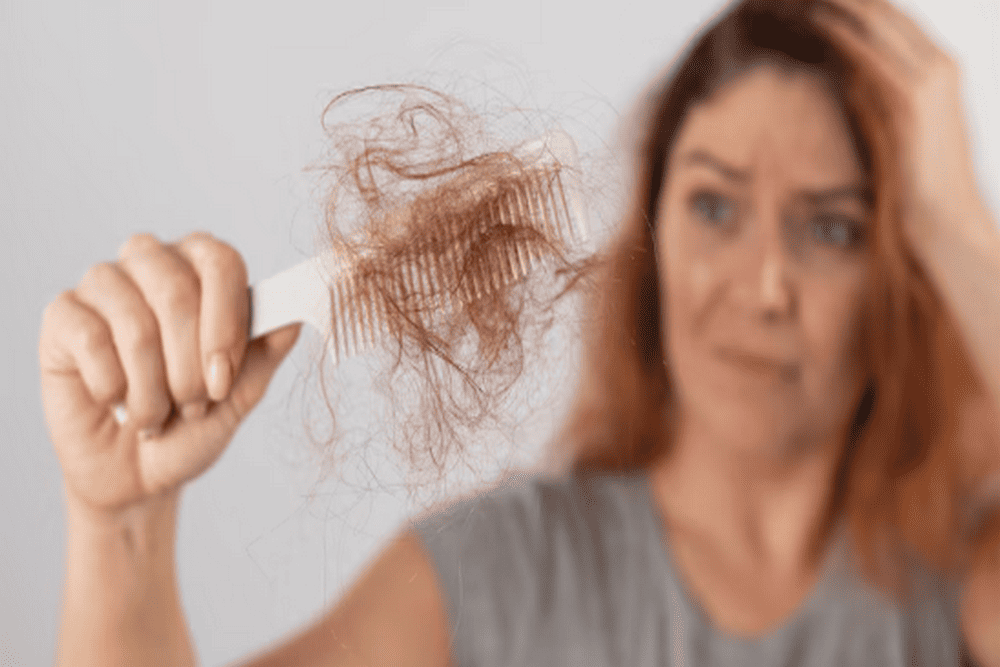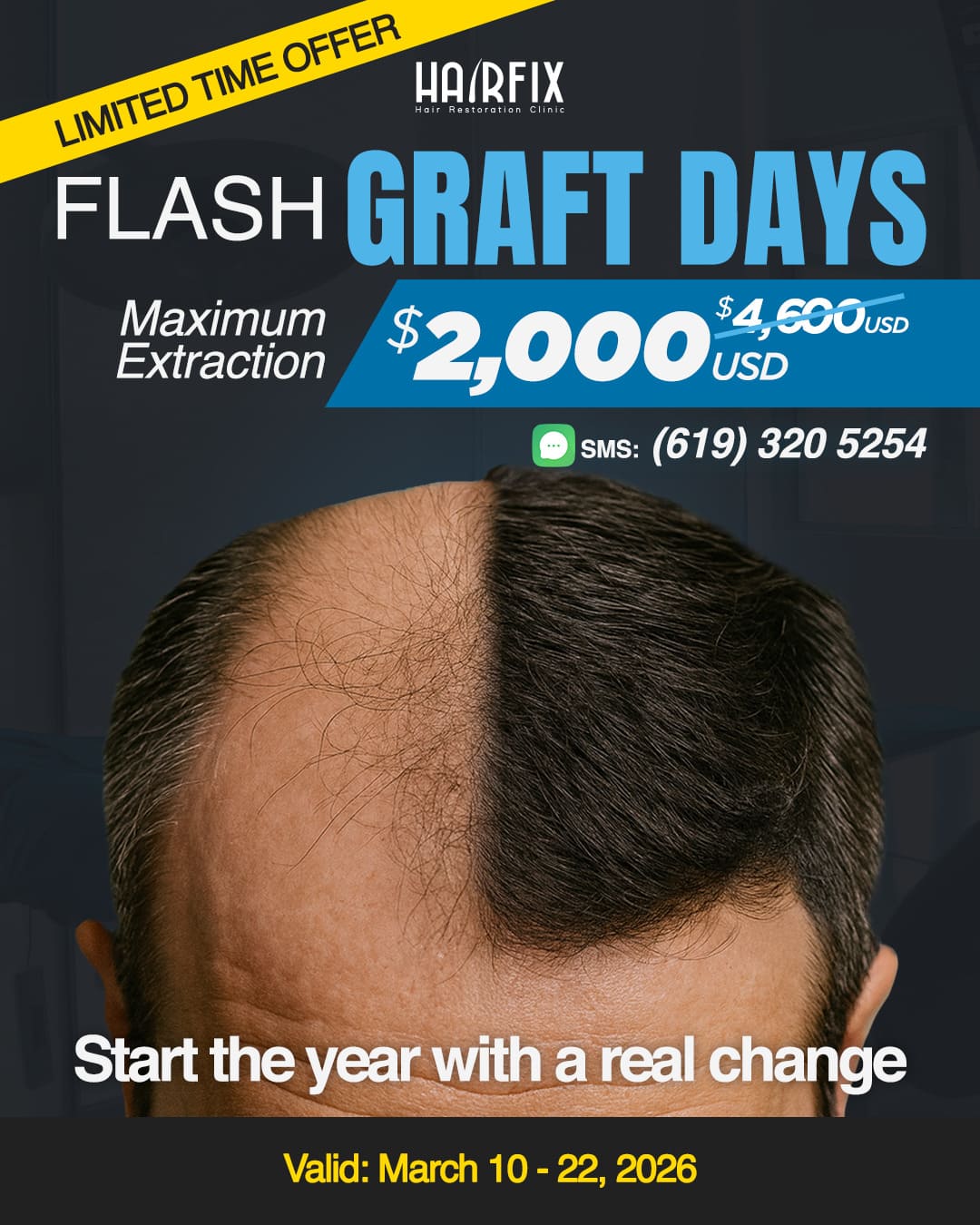Seeing hair on your pillow, in your brush, or in the shower can be concerning—but it’s not always a reason to worry. Daily hair shedding is part of your body’s natural cycle. However, if you notice more hair loss than usual or it starts affecting the appearance of your hair, it’s important to pay attention—it could be a sign that something isn’t right and requires professional care.
💇♀️ How Much Hair Loss Per Day Is Considered Normal?
The number varies from person to person, but it’s normal to shed between 50 and 100 hairs per day. This number may increase during washing, brushing, or even during certain seasons like fall or spring. Hair doesn’t grow continuously—it goes through a natural cycle divided into four phases:
- Anagen Phase (Growth): Lasts between 2 and 7 years. This is the active growth stage
- Catagen Phase (Transition): Lasts about 2 to 3 weeks. The follicle shrinks and growth stops
- Telogen Phase (Resting): Also known as telogen effluvium, lasts 2 to 4 months. Hair remains in the follicle without growing
- Exogen Phase (Shedding): In this phase, old hair is shed to make room for new growth
This process occurs in a staggered way across different areas of the scalp, which is why we always have hair present. So losing 50 to 100 hairs a day is part of a healthy hair cycle.
⚠️ What Can Cause Increased Hair Loss?
Although daily hair shedding is normal, certain factors can disrupt the natural renewal cycle and lead to excessive hair loss:
Hormonal Factors
Hair loss can be especially frustrating when it seems to happen for no clear reason. Often, hormones play a key role in this process, with changes that—while natural—can significantly impact hair health and cause concern. The most common hormonal triggers include:
- Androgenetic alopecia: Common in both men and women, caused by a genetic sensitivity to dihydrotestosterone (DHT)
- Hormonal changes: Events like pregnancy, childbirth, menopause, or stopping hormonal contraceptives can alter the hair cycle
Physical or Emotional Stress
Acute or chronic stress can cause a type of hair loss called telogen effluvium, where many hair follicles prematurely enter the resting phase, leading to significant hair shedding a few months after the stressful event.
This condition is often temporary, and hair typically regrows once the stressor is resolved. However, managing stress through techniques like meditation, regular exercise, and a balanced diet is essential, as these also support overall hair health.
Nutritional Deficiencies
Nutritional deficiencies can greatly impact hair health. A lack of iron, zinc, biotin, protein, or B-complex vitamins weakens hair follicles and can cause progressive hair loss.
Restrictive diets and eating disorders also play a significant role, as they deprive the body of the essential nutrients needed to maintain strong, vibrant hair.

Illness or Medical Conditions
Certain systemic diseases are linked to hair loss. The most common include:
- Hypothyroidism and hyperthyroidism, which can disrupt hair metabolism and affect hair growth
- Autoimmune conditions such as alopecia areata, which causes hair loss in specific areas of the scalp
- Other conditions like anemia, lupus, or chronic infections may also contribute to hair thinning or loss
Treatments and Medications
Some medical treatments and medications can trigger hair loss as a side effect by interfering with natural hair growth. Common treatments that may cause this include:
- Chemotherapy: Used in cancer treatment, it affects not only cancer cells but also those responsible for hair growth
- Radiation therapy: Can cause hair loss in the targeted areas, depending on intensity and duration
- Antidepressants: Certain drugs used for emotional disorders may weaken hair as a side effect
- Anticoagulants: These medications may influence the hair growth cycle and lead to shedding
This type of hair loss is usually temporary and depends on several factors, such as dosage and treatment duration. It’s advisable to consult a specialist to address side effects and explore appropriate solutions.
External Damage
Excessive heat from styling tools like flat irons or blow dryers, harsh chemical treatments such as bleaching, or tight hairstyles can damage both the hair shaft and the follicles.
🚨 Warning Signs: When Is Hair Loss No Longer Normal?
Paying attention to these signs can help you recognize when hair loss may require medical attention:
| Excessive hair loss when brushing or washing | If clumps of hair are coming out every time you wash or brush, it’s time to consult a specialist. |
| Increased hair on pillows or clothing | Noticing more strands than usual on your pillow, clothes, or floor could indicate progressive hair loss. |
| Visible thinning or bald spots | When areas of the scalp become more visible, especially along the hairline or crown, it may signal a loss of density. |
| Changes in texture, volume, or thickness | Hair becomes thinner, more fragile, harder to manage, or loses its natural volume, possibly due to structural weakening. |
| Receding hairline | Particularly in men, if you notice the hairline moving back or widening temples, it could be a sign of progressing androgenetic alopecia. |
✨ Restore Your Hair With Professional Help
Do you feel like your daily hair loss is no longer normal? At Hairfix, a specialized hair restoration clinic in Tijuana, we can help you recover your hair and confidence. We offer treatments like hair implants, a permanent solution for areas with advanced loss, and hair mesotherapy to strengthen strands, reduce shedding, and stimulate growth.
Our expert medical team, cutting-edge technology, and top-tier facilities are here to support your journey.
Visit us at NewCity Medical Plaza, just 10 minutes from the border. Don’t wait any longer—book your hair consultation today and find the solution you’ve been looking for.


